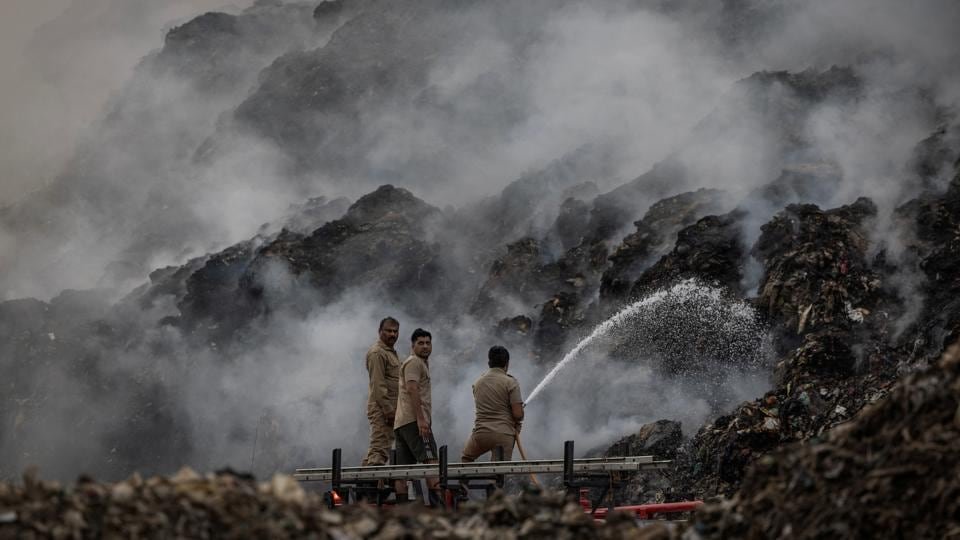The Municipal Corporation of Delhi (MCD) has reached out to the fire department to suggest new techniques or equipment to douse landfill fires as conventional methods were not working, the civic body told the National Green Tribunal (NGT) in a report on the three-day-long fire that broke out at Ghazipur landfill in April, officials aware of the matter said.
MCD also said that the fire in April was the only one at a city landfill this year and that preventive measures at all three landfill sites were beginning to work.
“The fire department has been requested to devise a methodology/equipment as well as some chemicals to douse such fires, as it has been seen that these fires cannot be controlled through conventional fire tenders carrying water,” said the submission, dated August 2, a copy of which HT has seen. MCD also said that to prevent such fires, fencing or enclosing sanitary landfill sites (SLF) was needed for which a proposal of ₹25 crore has been submitted to the Delhi government.
Ghazipur remains the most problematic site out of the three dump sites in Delhi. Two major fires have broken out at the Ghazipur landfill over the past year on June 12, 2023, and April 21, 2024.
Delhi has three oversaturated dump sites at Ghazipur, Okhla and Bhalswa, where the Capital’s waste is managed. The report, sharing data on Delhi’s landfill fires, said that 54 were reported in 2016-17 of which 23 were major fires. In 2017-18, the figure was 31, with 26 being major fires. In 2018-19, 18 landfill fires broke out of which 10 were major. In 2019-20 and 2020-21, six landfill fires were recorded each, three in 2021-22, two in 2022-23 and one major and two minor fire incidents last year. So far this year, the Ghazipur fire has been the only one, the report said, adding that preventive measures taken so far include patrolling staff on duty, the use of perforated pipes to release methane gas, restrictions on cigarettes and lighters near the landfills, and sprinkling of water at regular intervals.
Responding to the submission, a fire official said that landfill fires generally pose a challenge as the origin of the blaze is difficult to find. Owing to the gaseous nature of the fire – through methane, the official said that combustion can occur at multiple spots. “This, combined with the fact that navigating fire tenders through landfills requires extreme caution, also makes managing such fires a tricky task. The instability of the landfills also increases the likelihood of fire engines getting trapped or even toppling over as there is no direct path to the flames,” the official said, adding that it will soon respond to MCD with suggestions.
Fires at landfills are triggered by methane formed by the decomposition of organic waste. Such methane-led fires are more frequently observed during the peak summer months of May-June and during the October-November period when methane generation from decomposing wet waste is on the rise and sparks ignite the flames. The second vulnerable period arrives after the monsoon months when the rate of decomposition increases in the presence of higher moisture content.






